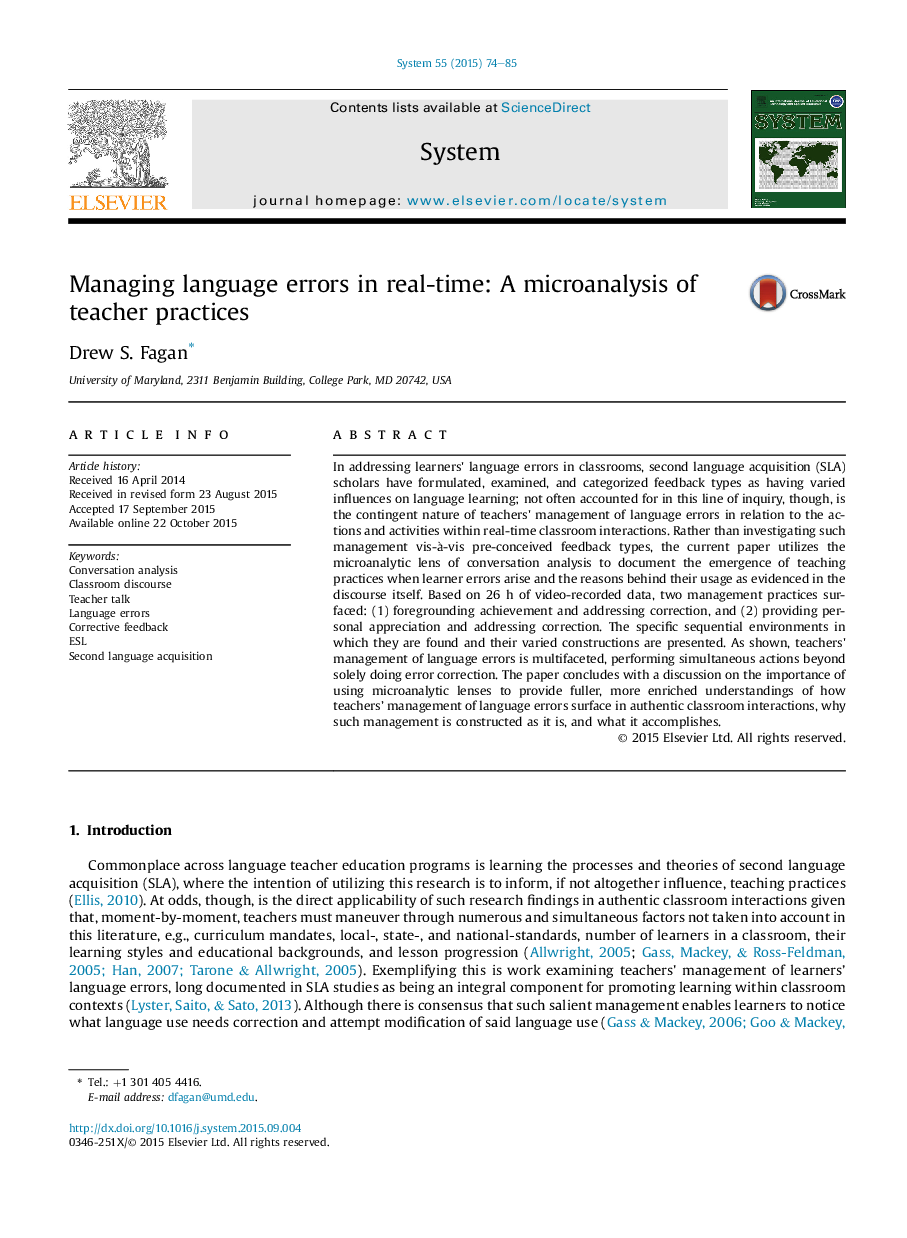| Article ID | Journal | Published Year | Pages | File Type |
|---|---|---|---|---|
| 373070 | System | 2015 | 12 Pages |
In addressing learners' language errors in classrooms, second language acquisition (SLA) scholars have formulated, examined, and categorized feedback types as having varied influences on language learning; not often accounted for in this line of inquiry, though, is the contingent nature of teachers' management of language errors in relation to the actions and activities within real-time classroom interactions. Rather than investigating such management vis-à-vis pre-conceived feedback types, the current paper utilizes the microanalytic lens of conversation analysis to document the emergence of teaching practices when learner errors arise and the reasons behind their usage as evidenced in the discourse itself. Based on 26 h of video-recorded data, two management practices surfaced: (1) foregrounding achievement and addressing correction, and (2) providing personal appreciation and addressing correction. The specific sequential environments in which they are found and their varied constructions are presented. As shown, teachers' management of language errors is multifaceted, performing simultaneous actions beyond solely doing error correction. The paper concludes with a discussion on the importance of using microanalytic lenses to provide fuller, more enriched understandings of how teachers’ management of language errors surface in authentic classroom interactions, why such management is constructed as it is, and what it accomplishes.
